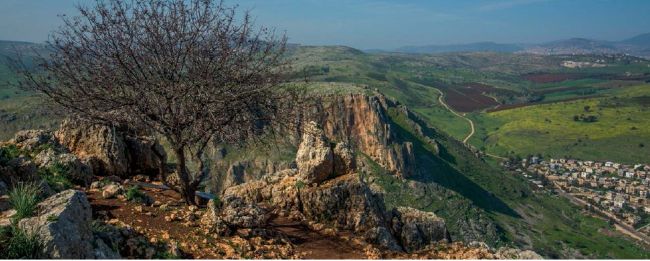In the first part of a new series, the Rev Richard Baxter offers a reminder of the importance of the gifts found in villages.

Photo: iStock
PAUL was definitely a city boy. He was born in the port city of Tarsus, educated in Jerusalem, discovered his faith in Damascus and developed it in Antioch. He toured the great cities of the eastern Mediterranean – Ephesus, Athens, Corinth and eventually Rome.
But Paul is probably the exception. The Bible is full of people from the little places who had an extraordinary impact.
Amos came from Tekoa – he describes himself as a shepherd who also took care of sycamore trees (Amos 7:14). Jonah runs away from God because the instruction to go to a great city like Nineveh frightens the life out of him (Jonah 1:1-3). David was emphatically a country boy, from the village of Bethlehem, herding sheep and fending off wild animals from attacking his flock (1 Samuel 16:1, 11-12).
Even as the birthplace of Israel’s greatest king, Bethlehem remained one of the little places. That’s why Micah writes: “But you, Bethlehem Ephrathah, though you are small among the clans of Judah, out of you will come for me one who will be ruler of Israel” (Micah 5:2). Both Luke and Matthew insist that Jesus’ birth took place in Bethlehem, not in nearby Jerusalem. When God breaks into our world, He arrives in a little place with a long history.
All too often the people from the little places are overlooked or undervalued. Jokes and quips about people from the back-of beyond seem to be ubiquitous across cultures.
It was like that in the time of Jesus too. John tells us the story of Nathanael (John 1:43-51). When he was told about Jesus of Nazareth and asked if he could be the Messiah, Nathanel’s instant cynical response was: “Can any good thing come out of Nazareth?”
Considering that Nathanael wasn’t exactly a city boy himself, his attitude is enlightening. He thought Nazareth was a dump, so he couldn’t imagine anything good or worthwhile ever coming out of it. In Nathanael’s mind, the people of Nazareth had already been written off, just because of where they came from.
It’s all too easy to overlook the skills and the strengths which are found in the little places. But out-of-the-way places like Nazareth mattered in God’s plans too. The family into which Jesus was born lived and worked there in Nazareth, not in the rising new city of Tiberias, and it was in the Nazareth synagogue that he set out his mission statement (Luke 4:14-21).
Most of the ministry of Jesus takes place in fishing villages and farming settlements. He doesn’t neglect the city, and Jerusalem features large in his concerns, but he’d rather stay out at Bethany with his small town friends, Mary and Martha. Even after his triumphal entry to Jerusalem, he’s happy to escape the city for the village (Matthew 21:17). Cities can be wonderful, lively, vibrant places, full of possibilities and opportunities. But we forget about or underestimate the little places at our peril. There too, there is life and creativity, faith and potential. Some of our little churches in places we couldn’t locate on the map are also places full of life and love, places where inspirational leaders may be nurtured and developed.
The evidence of scripture is that small does not equal unimportant. Sometimes God’s greatest work takes place in the most unexpected places.
The Rev Richard Baxter is minister at Fort William: Duncansburgh MacIntosh linked with Kilmonivaig.